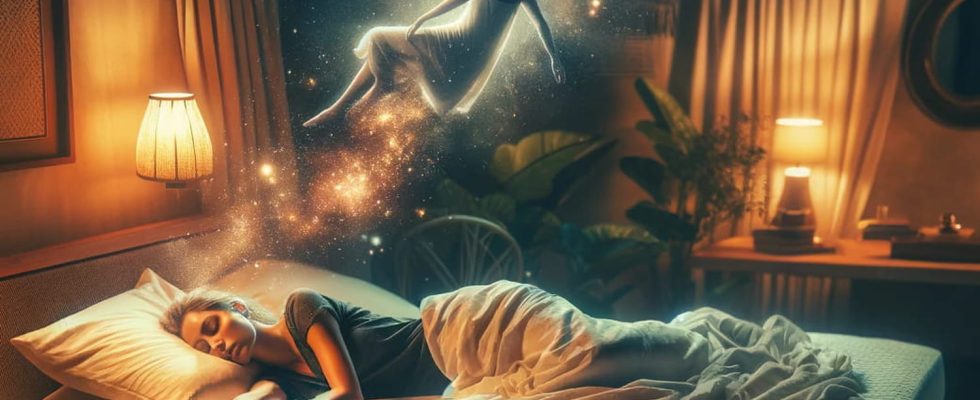Almost everyone has already experienced this sensation, often associated with a startle, when falling asleep.
When falling asleep, when we are about to fall into deep slow-wave sleep, it is not uncommon to have the impression of free fall and wake up with a start. This sensation is characterized by a involuntary muscle contraction of a part of the body, followed bya start, most often leading to an awakening. This phenomenon frequent remains little studied by sleep specialists who consider it to be physiological and therefore, quite banal. For Dr Marc Rey, neurologist specializing in sleep, president of the National Institute of Sleep and Vigilance (INSV), it is rather a warning signal falling asleep. “When we fall asleep we have hypnic jerks which can be more or less strong depending on whether they affect a arma legin which case we may have the impression of relaxing, but if they are more violent and involve the whole body, we may feel a sensation of catching up after a fall“, develops the specialist.
A letting go that feels good
To the extent that one is falling asleep, one is not at all aware of what is happening. This physiological phenomenon is what we call sleep onset myoclonus. “It is an absolutely banal and non-pathological phenomenon, reassures Dr. Marc Rey.
Several hypotheses would explain this phenomenon. The most likely explanation for this feeling of falling into a void when falling asleep would essentially lie in a misinterpretation by the brain of this sudden muscle contraction. The sleeping brain interprets this movement as an attempt to avoid a fall. “Sleep onset myoclonus has no no impact on sleep quality since they only last a few seconds. In general, we go back to sleep very easily”, reassures the sleep neurologist. It seems that some factors tend to increase the frequency of myoclonus. This is particularly the case with stress and excessive consumption of stimulants (tea, coffee, alcohol, tobacco) or even practicing physical activity a few hours before bedtime. In the same way, going to bed too late can promote the occurrence of this phenomenon. “Some people may be bothered when these sleep onset myoclonus occur too frequently but in principle, knowing what it is reduces the stress induced by not having understood what is happening and promotes letting go when falling asleep“. If this is not the case, it may always be interesting to consult your doctor.
Thanks to Dr Marc Rey, neurologist specializing in sleep, president of the National Institute of Sleep and Vigilance (INSV)
